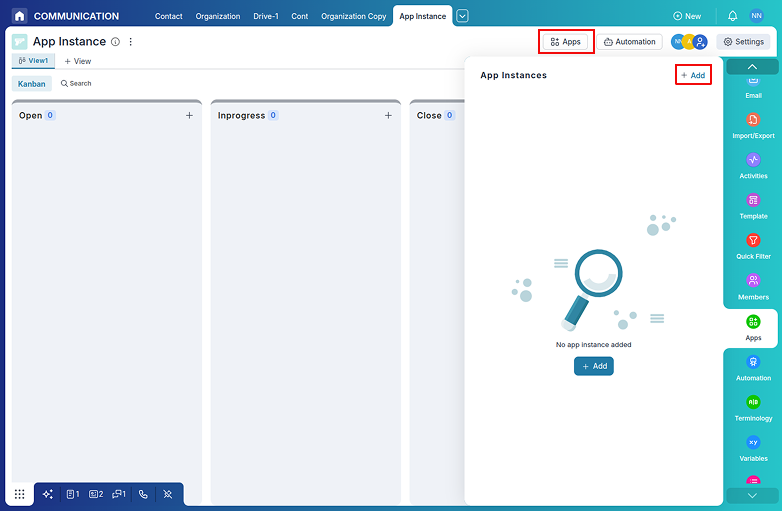GitHub Integration with Pronnel - A Complete Guide
Streamline your development workflow by connecting GitHub with Pronnel. This comprehensive guide will walk you through setting up GitHub integration, managing repositories, tracking issues and pull requests, and automating workflows between your development and project management processes.
Steps To Follow
Step 1: Access App Integration in Pronnel

Log into your Pronnel account and navigate to the main dashboard. Look for the "Apps" section in the left sidebar or top navigation menu. Click on it to access the app integration marketplace where you can connect various third-party services including GitHub.
Step 2: Connect Your GitHub Account
-section.png)
-section.png)
In the app integration section, find and click on the GitHub integration card. You'll see a "Instance". Select the instance you want to connect to Pronnel.It will be redirected to GitHub where you need to authorize Pronnel to access your repositories. Make sure you're logged into the correct GitHub account and grant the necessary permissions.
Step 3: Configure Repository Settings

After successful authentication, you'll be redirected back to Pronnel. Here, you can select which repositories you want to integrate with your Pronnel boards. Choose the repositories that are relevant to your current projects. You can also configure which events (commits, issues, pull requests) you want to track and sync with your Pronnel workflow.
Step 4: Set Up Issue and PR Tracking
Configure how GitHub issues and pull requests should be tracked in your Pronnel boards. You can set up automatic creation of Pronnel items when new GitHub issues are created, or when pull requests are opened. Configure the mapping between GitHub labels and Pronnel board phases or statuses to maintain consistency across both platforms.
Step 5: Automate Workflows

Set up automation rules to streamline your development workflow. For example, you can create rules that automatically update Pronnel items when GitHub issues are closed, or send notifications to your team when critical pull requests are merged. You can also set up bi-directional sync so that updates in Pronnel reflect in GitHub and vice versa.
Conclusion
GitHub integration with Pronnel creates a powerful bridge between your development and project management workflows. By following this guide, you can seamlessly connect your repositories, track issues and pull requests, and automate routine tasks.
The integration allows you to maintain visibility into your development progress directly from your Pronnel boards, ensuring that project managers and developers stay aligned. With automated workflows, you can reduce manual updates and focus on what matters most - building great software.
Remember to regularly review and update your integration settings as your projects evolve. For additional support, visit Pronnel Support or check out our YouTube channel for more integration tutorials.
Frequently Asked Questions About GitHub Integration with Pronnel
What permissions does Pronnel need to access my GitHub repositories?
Pronnel requires read access to your repositories to track issues, pull requests, and commits. You can control which repositories are accessible through GitHub's authorization settings.
Can I integrate multiple GitHub organizations with Pronnel?
Yes, you can connect multiple GitHub accounts and organizations to Pronnel. Each connection can be configured independently with different repository access and automation rules.
Will GitHub integration affect my repository performance?
No, the integration uses GitHub's API efficiently and won't impact your repository performance. Pronnel only reads data and doesn't modify your code or repository structure.
Can I sync Pronnel items back to GitHub issues?
Yes, Pronnel supports bi-directional sync, allowing you to create and update GitHub issues directly from your Pronnel boards and vice versa.
How do I disconnect GitHub integration if needed?
You can disconnect GitHub integration anytime from the Apps section in Pronnel. You can also revoke access from your GitHub account settings under "Authorized OAuth Apps".
Are there any limitations on the number of repositories I can integrate?
The number of repositories you can integrate depends on your Pronnel plan. Free plans have basic integration limits, while paid plans offer unlimited repository connections.
Can I set up different automation rules for different repositories?
Yes, you can configure unique automation rules and workflows for each repository, allowing you to customize the integration based on your project needs.